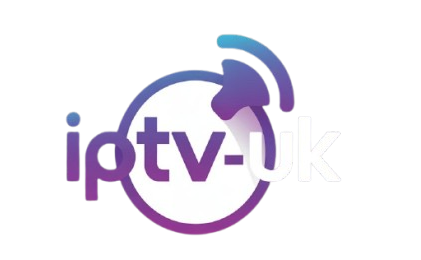iptv explained

IPTV Explained: Everything You Need to Know
1. What is IPTV?
IPTV, or Internet Protocol Television, refers to the delivery of television content over internet networks instead of traditional satellite or cable formats. Unlike downloadable media, IPTV offers the ability to stream the source media continuously, making it a convenient solution for live broadcasts and on-demand services.
2. How IPTV Works
IPTV works by converting traditional TV signals into IP packets. These packets are then transmitted over the internet and decoded by the receiving device, such as a smart TV, set-top box, or mobile phone. IPTV relies on a stable internet connection to deliver high-quality viewing experiences.
Streaming Protocols in IPTV Explained
The technology leverages streaming protocols like RTSP, HTTP, and MPEG-DASH to deliver content efficiently. Multicasting and unicasting methods are also used depending on whether the content is live or on-demand.
3. Types of IPTV Services
Live Television in IPTV Explained
This type of IPTV mirrors traditional broadcast TV, enabling users to watch content in real-time as it airs. Sports, news, and live events are typically streamed via live IPTV services.
Time-Shifted Media in IPTV Explained
Time-shifted media allows viewers to watch previously aired content. This is particularly useful for those who missed the original airing or prefer watching content at their convenience.
Video on Demand (VoD) in IPTV Explained
VoD services allow users to choose and watch video content whenever they choose. Netflix, Hulu, and similar platforms use this model, offering a vast library of content accessible at any time.
4. IPTV vs Traditional Television
While traditional TV relies on satellite or cable transmissions, IPTV uses broadband connections. This enables higher customization, interactivity, and flexibility, making IPTV a more user-centric option compared to conventional methods.
5. IPTV Devices and Compatibility
To use IPTV, you need a compatible device such as a smart TV, Android box, Amazon Fire Stick, or a dedicated IPTV set-top box. Smartphones, tablets, and PCs can also access IPTV content via specific apps or browser-based services.
Popular IPTV Apps and Platforms
Apps like IPTV Smarters Pro, TiviMate, and GSE Smart IPTV are commonly used to stream IPTV content. Each has features like EPG (Electronic Program Guide), parental control, and catch-up services.
6. IPTV Subscription Models
IPTV services typically operate under monthly or yearly subscriptions. Some offer free channels, but premium content often requires payment. It’s crucial to choose a reputable provider to avoid piracy and service disruptions.
7. Benefits of IPTV Explained
- On-demand content availability
- Support for multiple devices
- High-quality video streaming (HD, 4K)
- Interactive TV features
- Personalized content and recommendations
8. Challenges and Limitations of IPTV
IPTV requires a stable internet connection; without it, streaming quality deteriorates. Latency, buffering, and limited customer support are other challenges, especially with unverified providers.
9. IPTV Legal Issues and Considerations
Legality varies based on the source of content. Official services like Hulu or YouTube TV operate legally. However, accessing copyrighted material through unauthorized IPTV providers is illegal in many countries.
10. How to Choose a Good IPTV Provider
- Check provider reviews and ratings
- Ensure they offer legal content
- Look for features like EPG, cloud DVR, multi-device support
- Evaluate customer service availability
11. IPTV for Business and Hospitality
Businesses, especially in the hospitality sector, use IPTV to deliver entertainment and information to guests. Hotels, hospitals, and corporate offices leverage IPTV for branding, news, and training purposes.
12. IPTV and Smart Homes
IPTV integrates seamlessly with smart home systems, offering centralized control and automation. Voice assistants like Alexa and Google Home can be used to operate IPTV applications, adding convenience and enhancing user experience.
13. Future of IPTV Technology
The future of IPTV looks promising with the integration of AI for personalized recommendations, 5G for faster speeds, and edge computing for low-latency streaming. Interactive and immersive experiences like AR and VR are also being explored.
14. IPTV Explained in Summary
IPTV represents the future of digital entertainment by blending convenience, flexibility, and personalization. As technology evolves, IPTV is set to become even more integral to how we consume media. Choosing legal and reliable providers is essential for maximizing its benefits while staying compliant with regulations.
